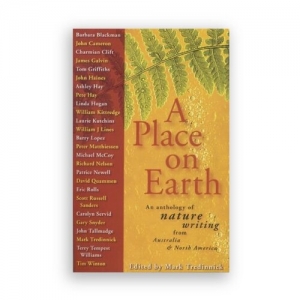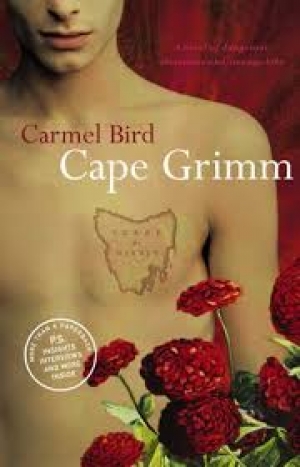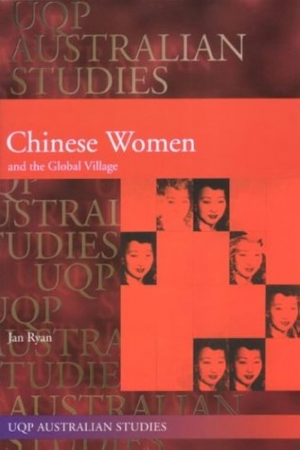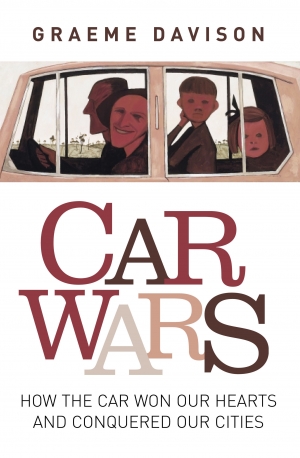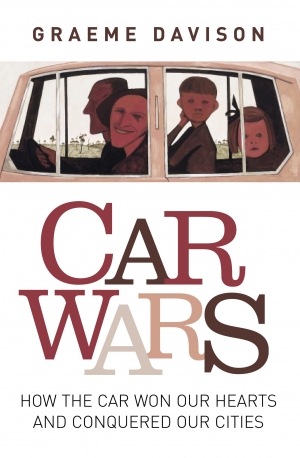Archive
Letters to the Editor - March 2004
Monday, 01 March 2004The puzzle of PhDs
Dear Editor,
It’s pretty clear that historians can’t win, especially if they have the audacity to use a doctoral thesis as the basis for a book. As I read Aviva Tuffield’s puzzling review (ABR, December 2003/January 2004) of Clare Wright’s Beyond the Ladies Lounge, and Wright’s understandably puzzled response (ABR, February 2004), I was reminded of a debate that occurred over several issues of ABR in 2002, which spawned plenty of silly generalisations about the quality of writing in PhD theses, but not much else.
... (read more)Were she alive, Edna Walling would probably be delighted to know that another of her books has been reissued. She might also be astonished and just a little peeved. After a brilliant career as a garden designer, columnist and author – as well as photographer, cottage designer and ardent protector of the natural landscape – Walling’s fame had all but faded by the time she died in 1973 at the age of seventy-seven. Few noticed her passing. However, her renaissance began in the early 1980s, with new editions of selected works and with Peter Watts’s widely praised The Gardens of Edna Walling. Many more such publications followed.
... (read more)This month we welcome back Aviva Tuffield, who returns as Deputy Editor, a new position for ABR and one that reflects her seniority and her long commitment to the magazine. We also farewell, with many thanks, Anne-Marie Thomas, who filled in while Aviva Tuffield went on maternity leave. Dianne Schallmeiner remains as Office Manager, and Alastair Lamont joins our admirable team of volunteers.
... (read more)Grant Bailey reviews 'Adventures in Law and Justice' by Brian Horrigan
It is comforting to think that the foundations of the legal system are sound. Perhaps this explains why there are so many common myths about the law, such as the notion that every legal problem has a ready solution, or that the law is essentially objective and value-neutral.
As students, litigants, witnesses and others who have suddenly become more familiar with the system of justice can attest, a closer look at the structure is usually disconcerting. This book, written by a professor of law, will be a revelation to those yet to become familiar with the cracks in the structure. It examines the fundamental concepts and assumptions that underlie law, taking nothing for granted. In the process, it explodes most of the myths.
... (read more)When the Picador Nature Reader was published several years ago, it included only one contribution by an Australian: an excerpt from David Malouf’s An Imaginary Life. It’s a beautiful piece of writing, but it is not set in Australia. It struck me at the time that for a culture so deeply embedded in, and concerned with, the land we have little in the way of nature writing.
... (read more)When Gabriel García Márquez’s One Hundred Years of Solitude was first published in English, there was an outbreak of what the late Angela Carter called ‘extravagant silliness’. Márquez’s novel was given a rapturous reception that focused on its wondrous exoticism, with scant regard for its grounding in the social and political reality of his native Colombia. Throughout the 1970s and 1980s, Carter was prominent amongst English writers who, influenced by South American fiction, began to take an interest in folklore and fairy tales, and to incorporate elements of fantasy into their work. But she recognised that the apparently strange dreams Márquez describes ‘are not holidays from reality but encounters with it.’
... (read more)Helene Chung Martin reviews ' Chinese Women and the Global Village' by Jan Ryan
Mai Ho and her two baby daughters huddled together in a crowded Vietnamese refugee boat. In the dark hull, they could sec equally frightened strangers. The nineteen-year-old mother thought of the husband she had left behind and of her future in a foreign land:
... (read more)Her two dishevelled little girls lay across her bosom and the taint of their urine blended with the sour odour of her dress. ‘They would like to go to the toilet but they would have to crawl across too many people and that would make noise so I said to them that they can just pass water on me. So my clothes from the waist down [were] very itchy, lots of rash.’
Gideon Haigh reviews 'Car Wars: How the car won our hearts and conquered our cities'
To read this story of ‘how the car conquered our hearts and conquered our cities’ is to feel invited – to reflect, as its author Graeme Davison does in his introduction, on one’s own relationship with the automobile. And it requires immediate admission: mine is minimal. I do not, cannot, and probably never will drive a car. I am noted among friends for a casual attitude to such niceties as locking doors. Only with difficulty have I mastered the operation of a petrol bowser.
... (read more)Gideon Haigh reviews 'Car Wars: How the car won our hearts and conquered our cities'
To read this story of ‘how the car conquered our hearts and conquered our cities’ is to feel invited – to reflect, as its author Graeme Davison does in his introduction, on one’s own relationship with the automobile. And it requires immediate admission: mine is minimal. I do not, cannot, and probably never will drive a car. I am noted among friends for a casual attitude to such niceties as locking doors. Only with difficulty have I mastered the operation of a petrol bowser.
... (read more)Craig Sherborne reviews 'Bond' by Alan Bond (with Rob Mundle)
For a man who was supposed to have a shot memory, Alan Bond has a remarkable power of recall. In the mid1990s, facing fraud charges concerning his dealings in Manet’s painting La Promenade, he – or rather, his barristers – successfully argued in court that a series of minor strokes had left him with brain damage and a memory so defective he couldn’t possibly be expected to answer prosecution questions. Those Australians who reckoned all along that he faked the forgetfulness, the shuffling gait, and the vacant stare at the television cameras outside court will doubtless be confirmed in their view that he’s a shameless liar.
... (read more)


